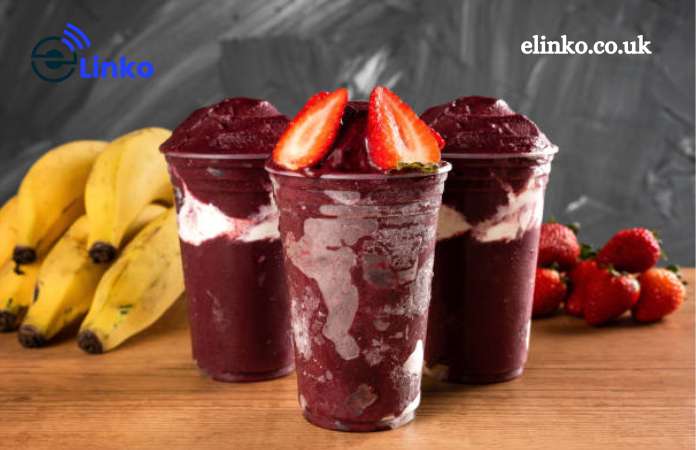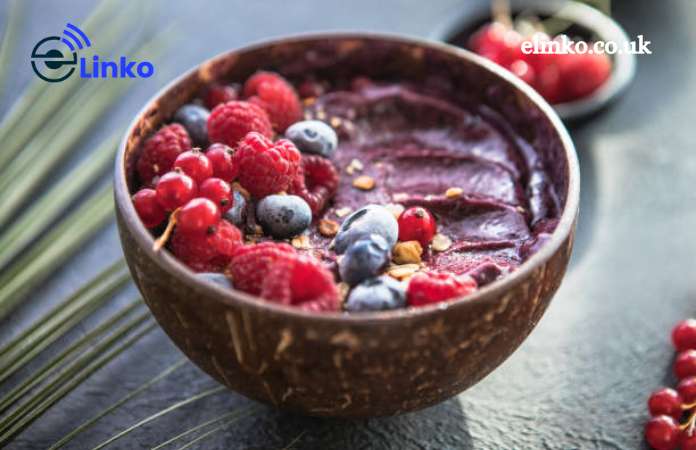Can dogs have acai berries? It’s an important question. Acai berries are considered one of the top superfoods due to their nutrient-rich composition. With the rise of health-conscious pet owners, many have wondered if acai berries are safe for their furry friends. This blog post will explore the truth behind the question, “Can dogs eat acai berries?” We’ll discuss the benefits and risks of adding this superfood to your pup’s diet.
What are acai berries & can dogs have acai berries?

Acai berries are dark purple fruit that grows on the Amazon rainforest’s palm trees. They are packed full of antioxidants, vitamins, minerals and fiber, making them a superfood for humans. But can dogs have acai berries?
The answer is yes, but with caution, as too much of this superfood could cause an upset stomach. To ensure safety, feed your pup only small amounts of acai berries and only after consulting with your veterinarian. Additionally, checking for any potential allergens your puppy may have is essential.
What are the benefits of acai berries for dogs?
Acai berries are a great source of antioxidants, vitamins and minerals, making them an ideal supplement for a healthy diet. They also boost the immune system, promote a healthy heart and reduce inflammation.
Acai berries may also be beneficial for skin and coat health. They have anti-inflammatory properties that can help soothe skin conditions and reduce dandruff. They also contain high omega-3 fatty acids that can improve coat condition and reduce shedding.
Additionally, acai berries are packed with essential amino acids and protein, which can help keep dogs’ muscles healthy. Finally, acai berries can provide a natural source of energy for dogs, helping keep them energetic and active.
Are there any risks associated with feeding dogs acai berries?
Regarding feeding dogs acai berries, there are some risks associated with this food. As with any food, there is the potential for an allergic reaction or digestive upset.
Introducing this food slowly to your dog to monitor their reaction is essential. Acai berries also contain a compound called amygdalin, which can be toxic in large doses.
These berries can be high in sugar, so moderation is key. Make sure to talk to your vet before giving your pup acai berries as part of their diet.
Can dogs have acai berries smoothies?

It’s generally not recommended for dogs to drink smoothies containing acai berries. While the berries are safe for canines, many smoothie recipes include ingredients like yogurt and milk that can be difficult for dogs to digest.
Acai berries can be mixed with other safe fruits and vegetables, such as apples, bananas, blueberries, and carrots, to create a nutritious treat for your pup. Alternatively, add pureed acai berry powder to their food instead.
Alternatives of Acai berries for dogs?

Plenty of other superfoods provide the same health benefits if your pup cannot have acai berries. Here are some alternatives for acai berries for dogs:
1. Blueberries:
Blueberries are a great alternative to acai berries as they offer many of the same health benefits. They are rich in vitamins, minerals, antioxidants and fibre, which can help to boost your pup’s immune system and overall health.
2. Goji Berries:
Goji berries are another healthy alternative for pups that can’t have acai berries. Like blueberries, goji berries are rich in vitamins and antioxidants but contain high levels of protein and iron.
3. Cranberries:
Cranberries are an excellent source of vitamins, minerals and antioxidants and can help to boost your pup’s immune system. They can also help to support healthy skin, coat and eyesight.
4. Apples:
Apples are a nutrient-rich fruit that can provide your pup with lots of vitamins and minerals. They can also help to improve your pup’s digestive health and reduce inflammation.
5. Pumpkin:
Pumpkin is an excellent source of fibre, which can help to keep your pup’s digestive system running smoothly. It’s also packed with beta-carotene, which can help to keep your pup’s skin and coat healthy.
All these alternative fruits can be fed to your pup in moderation as part of a balanced diet. Always consult your veterinarian before making any dietary changes for your dog.



